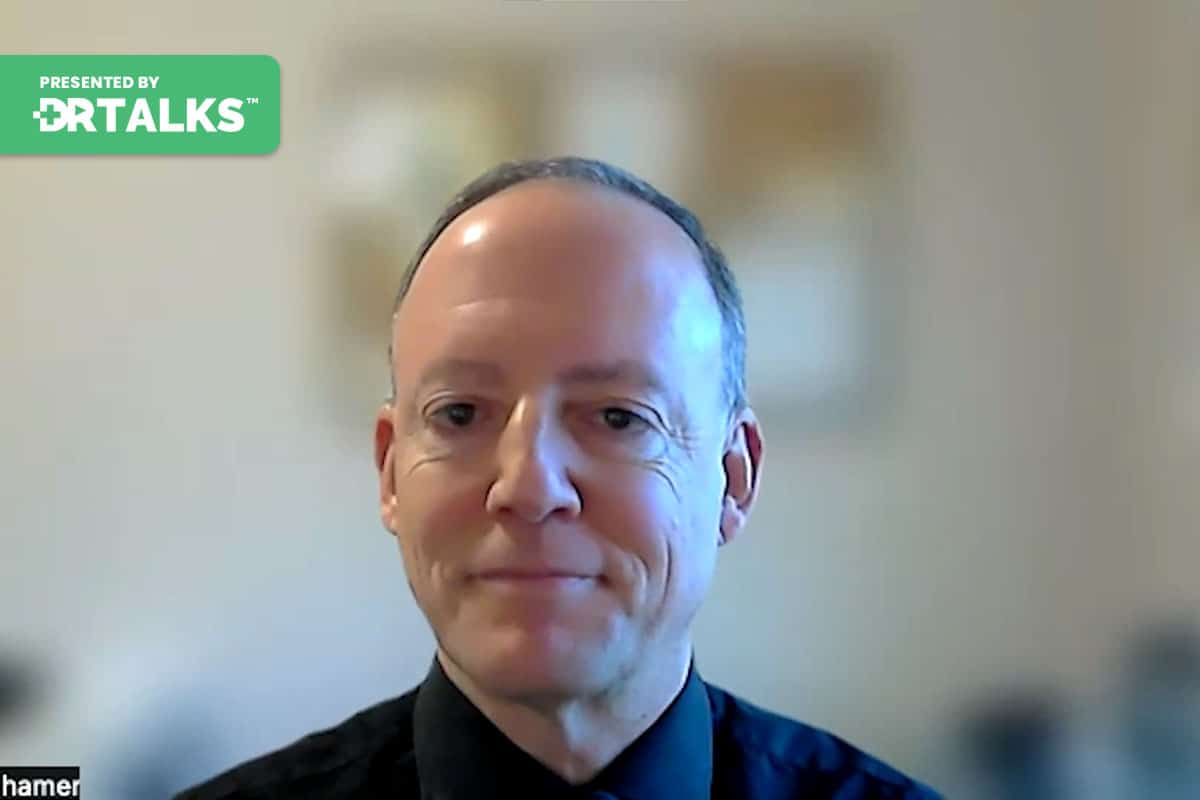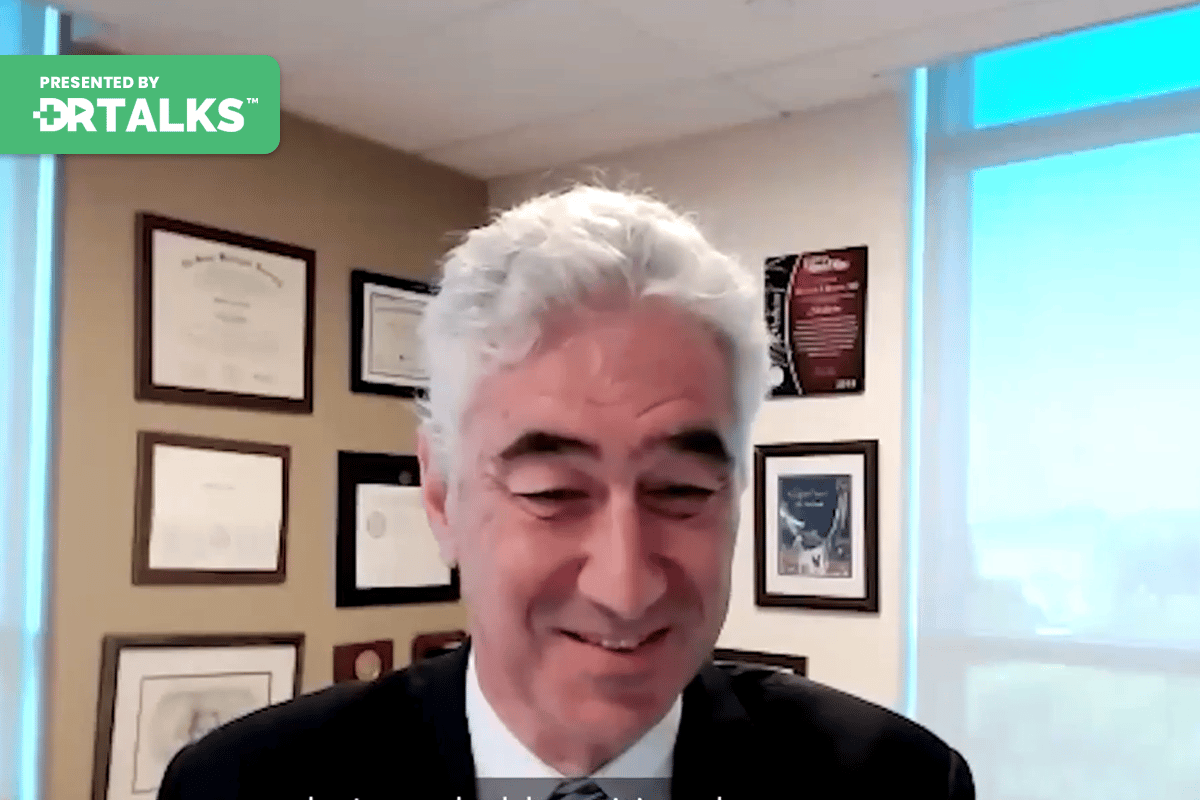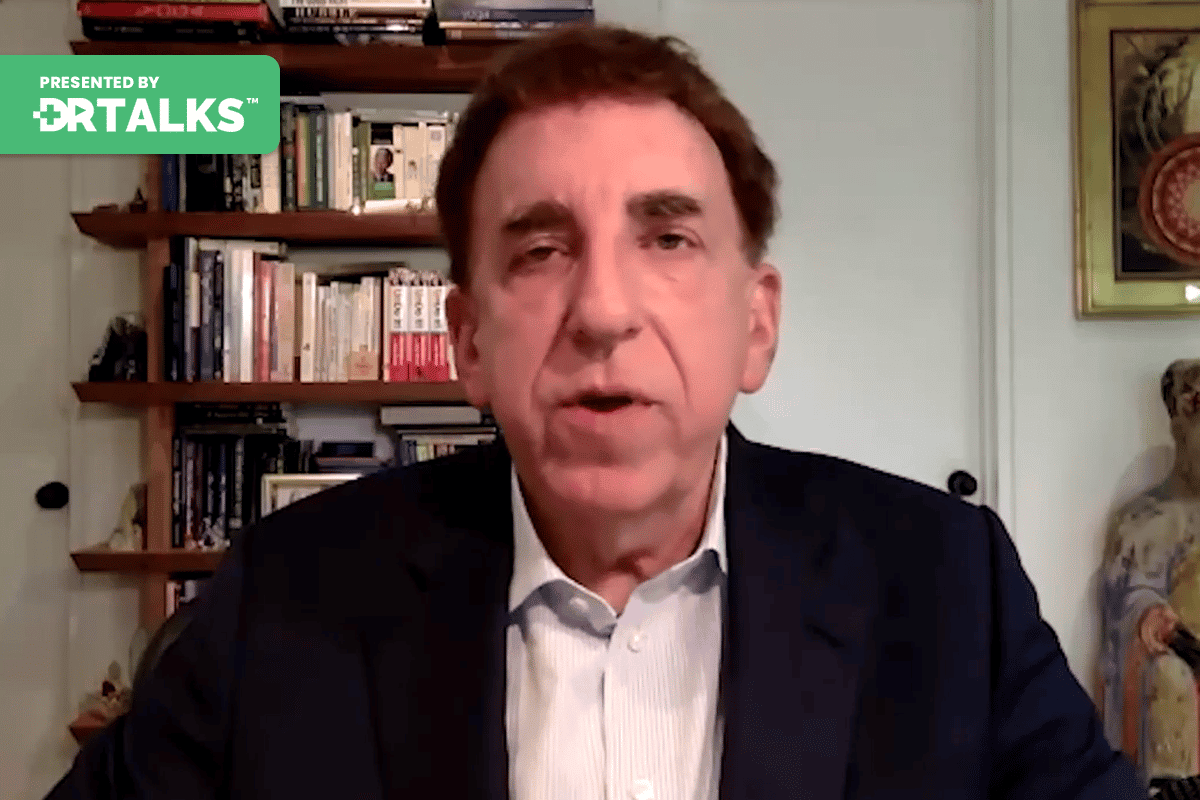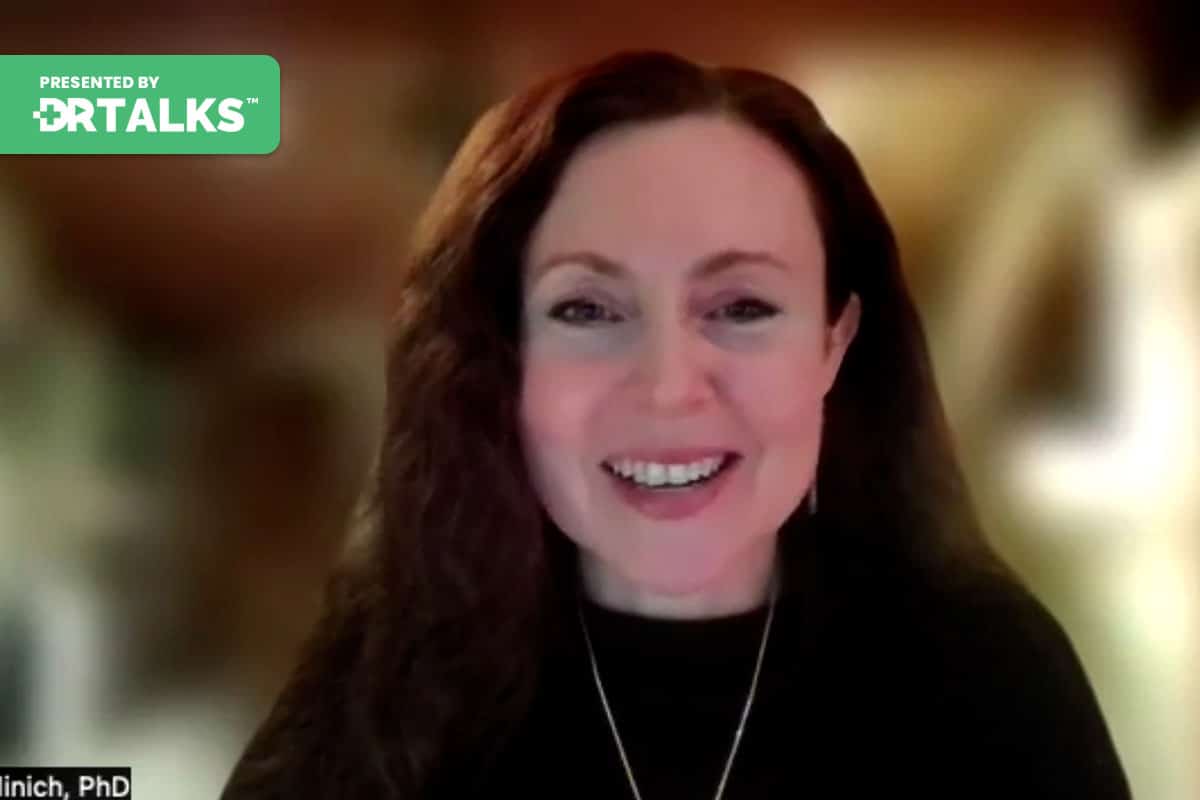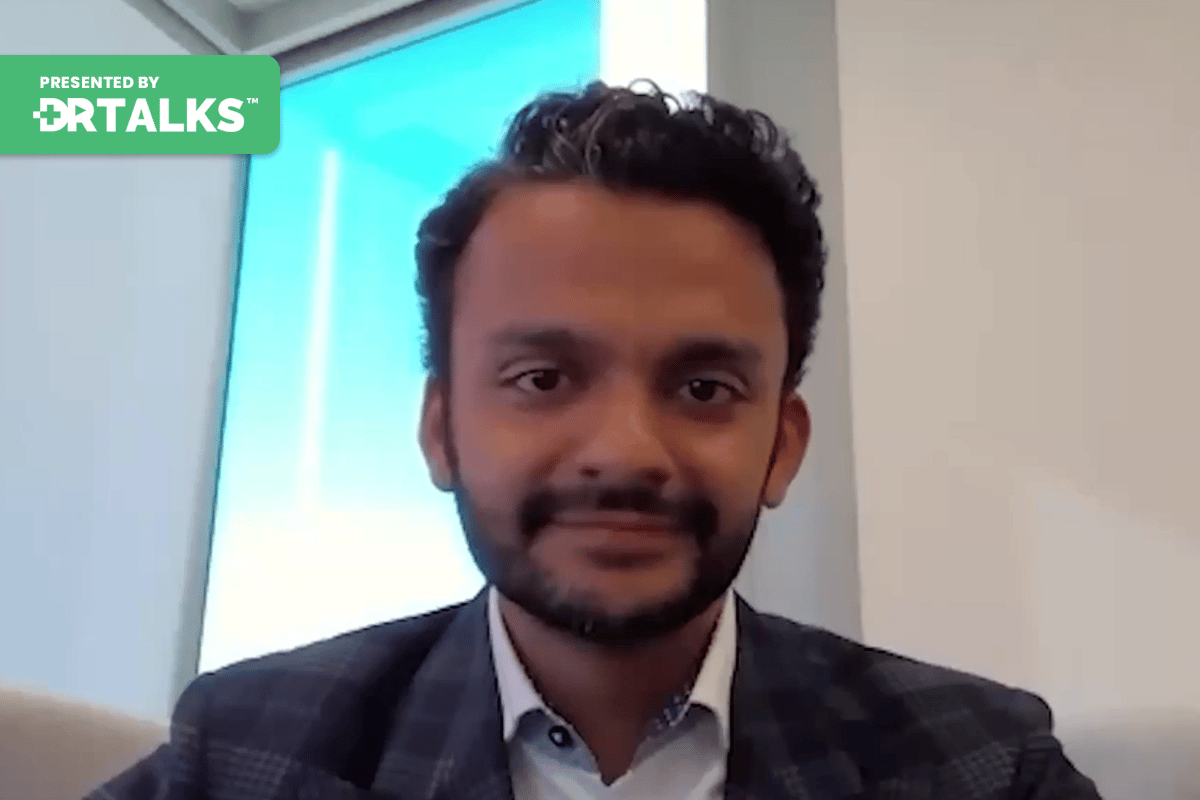Join the discussion below
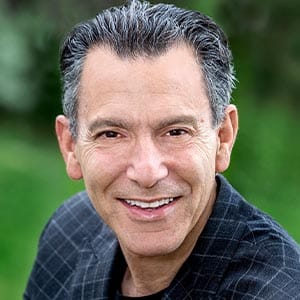
Joel Kahn, MD, FACC of Detroit, Michigan, is a practicing cardiologist, and a Clinical Professor of Medicine at Wayne State University School of Medicine. He graduated Summa Cum Laude from the University of Michigan Medical School. Known as “America’s Healthy Heart Doc”. Dr. Kahn has triple board certification in Internal... Read More
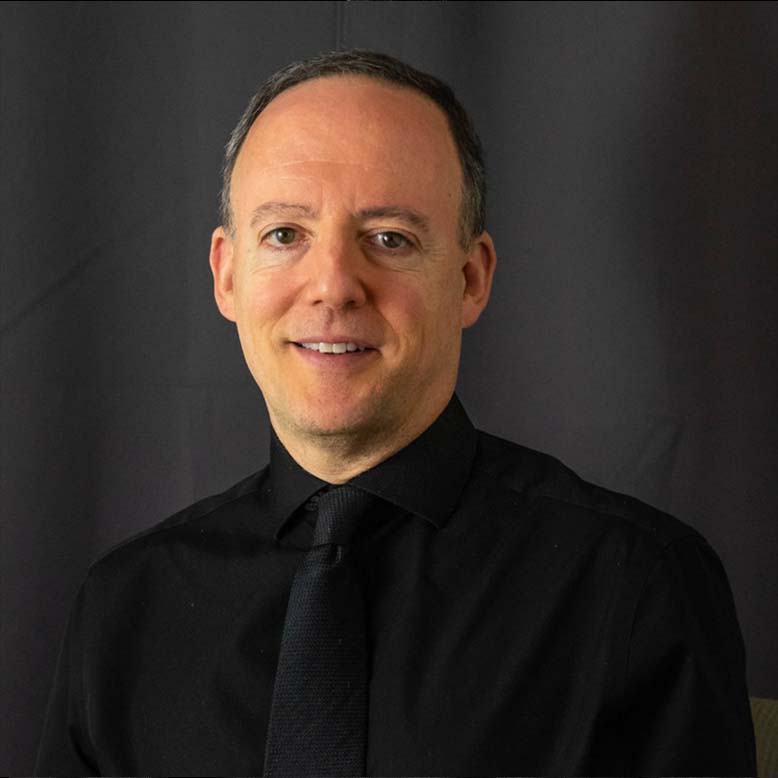
Director of TrueNorth Health Center Dr. Alan Goldhamer is the founder of TrueNorth Health Center, a state-of-the-art facility that provides medical and chiropractic services, psychotherapy and counseling, as well as massage and body work. He is also director of the Center's groundbreaking residential health education program. Articulate, inspiring and energetic,... Read More
- Water fasting has a long tradition of reversing disease pathologies and True North Health Center is the leading US location
- Candidates are screened before embarking on a medically supervised and inpatient water fast from one week to months. They are then transitioned to a whole food plant diet free of salt, oil and sugar
- Even apparently healthy individuals may benefit from a week-long water fast every year or 2
Joel Kahn, MD, FACC
Well. Hello everybody. Welcome back another and really, truly amazing and honored episode of reverse your heart disease naturally summit. You have got the world expert on water fasting for medical conditions, Dr. Alan Goldhamer. Hello Alan, how are you, sir?
Alan Goldhamer, DC
Doing great.
Joel Kahn, MD, FACC
Yeah. And you’re beaming to us from Northern California, better weather than the Midwest. We’re just chatting although this broadcast is evergreen, so people all over the world are going to be enjoying it and they’re gonna learn a lot, you know, really couldn’t have been more excited about hand picking the top person. I want to give you your appropriate due and biography. But you have been at this for a while, you established what’s called True North Health Center in Santa Rosa, California, 1984. And when this is beaming out, you know, you’re going to be nearly your 40th year anniversary. Crazy. The largest supervised fasting and care center. Over 20,000 people treated and you’ve got a training program. Maybe will chat about that for a minute because I think there are gonna be some healthcare practitioners might just want to get certified and add that on you promote S. O. S. Free diets free of salt free of oil free of sugar, of course plant based and author of the health promoting cookbook, a great book I have and then of course the classic smash it with Doug Lisle, the pleasure trap. So thank you for being here, I should mention contributor to the medical literature which is no small feat to do all that. So really great to have you here.
Alan Goldhamer, DC
My pleasure,
Joel Kahn, MD, FACC
So I’ve had the pleasure of attending and lecturing at the National Health Association in Cleveland and was exposed to a tradition of water fasting that just didn’t come up in my medical school and subsequent cardiology training. Why are you not just another doctor of chiropractic? Why in 1984? Is this something that you grew up with and knew about from even childhood? Like maybe the Esters did? Or is it something you just gravitated to? Because it’s, you know, it’s your distinct thing and you’ve done well with it.
Alan Goldhamer, DC
You know, I got exposed when I was a teenager to the idea of health from healthful living and plant diet and fasting through reading Herbert Shelton and others. And so I went to school specifically to be able to do water fasting supervision. That was what my interest was from a very early age. And at that time there wasn’t a lot of options available. The, you know, fasting was considered criminal quackery back then when we started, that was shortly after the wealth decision. It was hard, you know, alternative health practitioners were not to be seen or heard from the in fact, I remember my uncle who was a position when he heard I was interested in this field said I was not to go into this field that nobody in our family would go to somebody like that, let alone become somebody like that and that better. I should be a communist spot. And so, you know, that was my introduction to alternative medicine from the family. But ultimately I did become very interested.
I went to chiropractic college in Oregon and then osteopathic college in Australia and in Australia. I met Alan Burton, Who was probably the most experienced person using fasting to treat disease at that time. And so I got a chance to see people get well, which is really novel as you know, under conventional treatment of hypertension and type two diabetes, autoimmune disease, lymphoma, these conditions that don’t get better. You’re on drugs the rest of your life. You’re guaranteed to be on medication the rest of your life because you’re specifically not going to get better. And yet, you know, here I was seeing people with seriously compromised cardiovascular systems, normalize their blood pressure, lose their weight, maintain their weight loss, normalize their blood sugar levels. And so I became very interested. We came back, my wife and I in 1984, we opened North health and we’ve been doing this ever since.
Joel Kahn, MD, FACC
You’re a courageous person to overcome your skeptical family.
Alan Goldhamer, DC
We’ve gone from being criminal quacks to cutting edge researchers because fasting has gained a little bit more acceptance here in the last few years. In large part because of Walter Longo and others who have been publishing in major impact journals, showing that fasting has utility.
Joel Kahn, MD, FACC
Yes and thank you for bringing Dr. Longo up. Of course, we have interviewed the CEO of the company that he set up. L Nutra, Dr. Joseph Antoun. And people will tune into that and learn more about the five day fasting mimicking diet. A lot of people may not know that there’s a place called True North. I mean it’s not exactly as famous as maybe the Mayo clinic it should be, but it’s not and probably people aren’t familiar with water fasting. So I’ve got arthritis and psoriasis. I’m overweight. I’ve got inflammation on my family doctors blood test. I find your center. I imagine I do some phone pre screening to see if I’m eligible. And I’ve packed my bags and I’m coming out to visit you. I mean what am I gonna get and expect? How long am I see and then we’ll talk about the results.
Alan Goldhamer, DC
The first thing a person is going to do is go onto our website that at the TrueNorthHealth.com and complete what are called registration forms which gets me their medical history. We offer no cost phone conversation. So I go through their medical history determine. Are they a candidate for this type of intervention? If so, um you know, what would be involved in preparation for that? What we would get the medical records and all the information necessary to establish a good baseline. If they were a candidate for fasting decided they wanted to do that. They would come to true North Health Center. We’re in Northern California. They would see one of our physicians for history examined lab in detail. They’d be seen twice a day by staff doctors during their stay with us would be carefully monitored and go through a period of fasting that might range anywhere from 5 to 40 days on water.
Only then they’d have a period of recovery of about half that length of the fast. With a careful whole plant food. S. O. S. Free diet S. O. S. Of course as you know, is the international symbol of danger. But it also stands for salt oil and sugar. The chemicals added to food that make people fat sick and miserable. And the reason why we have the chronic degenerative diseases that we’re facing today in our society. And so we teach them how to eat a healthy whole plant food S. O. S. Free diet, get appropriate exercise, hopefully develop improved stress management techniques so that when they went home they could sustain the results and make us look good
Joel Kahn, MD, FACC
Make them look good too
Alan Goldhamer, DC
Well that’s what we call a side effect of getting well the two North South Center is actually a 501C3 nonprofit research organization that’s a human subjects laboratory disguised as a clinic. And so you know what we’re really trying to do is figure out how to use this diet nutritional medicine type approach. Who it works well with how to do it and then documented in the pure reviewed scientific footage.
Joel Kahn, MD, FACC
So when you’re reviewing that chart, I don’t want to start with those that aren’t qualifying. But what are 2,3,4 red flags. Maybe not a good candidate to come out to True North?
Alan Goldhamer, DC
Well, the people that are the best candidates for this type of an approach in general are people who have conditions that are caused or made worse by dietary access. And so most of who we treat our people with diabetes, autoimmune diseases, cardiovascular disease and certain types of cancer, particularly lymphoma, which we have a quite a bit of experience working with. And these conditions respond dramatically predictably as we’ve been able to demonstrate to fasting and dietary change. The conditions that don’t respond to fasting, dietary changes we tend not to take. I mean we’re in the luxurious position of being able to cherry pick out the patients that are gonna have hopefully excellent results and that’s who we want to work with. So there are neurological conditions and other problems that maybe you have nothing to do with diet and lifestyle are not likely to be responsive to this kind of approach patients that have contraindications to fasting.
For example, if you had a PE or you’ve had a DVT or you’ve had if you have atrial fibrillation and you’re an anticoagulant medications. You can’t just arbitrarily discontinue water fast, it wouldn’t be for you because water fasting is done in general without the use of medications you have to be able to stabilize the patient safely off medications in order to go through fasting. If you’re on medications are not yet able to withdraw from, we would do a different kind of approach and more nutritional medicine approach. Diet and lifestyle approach, not water only fasting. So that’s one thing as patients have to be state, be able to be stabilized safely off their medication. Sometimes that takes weeks in order to build strictly people. For example on steroid medications, you have to wean down slowly. Once the first people are stabilized off their medications, then they would undergo through fasting for anywhere from 5 to 40 days and then they would recover. So some people are with us a week or two, some people with us a month or two, some people with us a year.
Joel Kahn, MD, FACC
And I mean it’s a quiet stay. People are not you know jogging 10 miles or on water fast. They’re in either what shared rooms or private rooms depending on everybody has a private room at true north health.
Alan Goldhamer, DC
So every has their own bedroom. But we have like this is a converted apartment complex that you may have a private with private. You have a privately sure about, depending on accommodations you’ve selected. And yes you’re on our campus, there’s nine buildings that make up the campus but your stay on the campus during the time. There is things like yoga and stretching and mild activities but we avoid vigorous activities during fasting. This is a period of rest in order to maximize fat loss and particularly visceral fat loss, which it turns out preferentially mobilized during fasting. You need to rest if you’re too active, you increase glucose neurogenesis. That means you’re going to break down proteins to maintain the glucose your brain and muscles need by resting, you maximize fat loss and particularly visceral fat loss.
In fact, we’ve done a study recently with the use of the decks a scanner where we looked at what happens to the body composition change during fasting and were able to show in fact that although people lose weight during fasting, lose protein, Water, fiber, glycogen and fat they regain their muscle fiber, glycogen and water after fasting in the six weeks after fasting so that by the end of six weeks lean mass is higher than it was at baseline. Bone mass is the same fat loss is what’s lost and in preferentially visceral fat for example, an individual that lost 20% of their body fat during two weeks of fasting will have lost 50% of their visceral fat load. And so the visceral fat is as you would expect is preferentially mobilized visceral fat. Is that fat around the abdomen, around the organs that’s thought to be most associated with disease and the production of ill 60 MLF all those inflammatory markers that people talk about so much nowadays. So with fasting unlike it’s a straight dietary change, you can disproportionately eliminate this visceral fat. And that seems to have at least one of the mechanisms by which we see improvement in cardiovascular disease.
Joel Kahn, MD, FACC
It’s said it quick, but it was powerful and meaningful and you know, that that ability to shed visceral fat and at least preserve or lose and regain your core muscle strength is critical and it’s exciting. I mean, I’ve seen one article you published on visceral abdominal fat. I don’t know that I’ve seen that muscle rebound, but that’s fascinating.
Alan Goldhamer, DC
And this is a new study we did that’s just coming out and you’ll find it at fasting dot org, which is a fast and convening website and it talks about six week follow up and that’s where we’re able to capture, you know, what actually happens during recovery. And now we actually have one year of follow up data which is exciting because it shows that there are highly motivated. Excuse me, highly motivated patients are capable of sustaining a whole plant food free diet at least for a year and when they do that, their weight loss, their blood pressure and their drug free state is also sustainable.
Joel Kahn, MD, FACC
That’s be great to have that paper out. So while we’re chatting, I’m looking at one of the original research studies, you published a while back, your first author, medically supervised water only fasting in the treatment of hypertension 174 consecutive patients. And, you know, this is a reverse heart disease naturally summit. A lot of people would love the thought I might be able to reduce safely and gradually and completely my blood pressure support because I can maintain my blood pressure normal without prescription drugs. So, tell us about, you know, either that paper and just in general, what you see and how do you handle their medication in the first week. And they’re on.
Alan Goldhamer, DC
The biggest problem with that paper was 174 consecutive patients. All 174 people lowered pressure enough to eliminate the need for medication. The average effect size in stage three hypertension, where systolic was 180 or over was a 60 point drop. Not even considering that many of their baselines were established on medications, all of them were off medications By the time we’re completed, the danger with medications, cardiovascular medications, blood pressure patients is if you don’t aggressively reduce their medications when they start changing this diet, you will end up having a person hyper Medicaid, which is, you know, can be a serious problem in of itself. The fact is, people are not really medicated for their blood pressure as much as they are medicated for the diet that they eat that causes the blood pressure and the moment they change that diet, medication modification has to be considered.
Most doctors never see anybody get well that practice conventional medicine. It’s not even part of the paradigm they draw on these drugs, you’re gonna be on the use of the rest of your life. That’s just how it is. There’s no known cause of blood pressure according to the websites I see from some medical society. So therefore nothing can be done to actually cure it. You just take the drugs, try to modulate the body’s response, keep blood pressure a lot of to slightly reduce the risk of stroke for those with the highest levels of hypertension. The reality though, is when people who willing to do what is considered dangerous and radical things like eat well, exercise and go to bed on time their blood pressure starts coming down and then our experience virtually all essential hypertension will normalize if you’re willing to carry it to the point you achieve optimum weight and sustain the diet. Lifestyle changes fast. It just makes it happen much quicker. So most of our patients, we start off with an aggressive healthy eating program even before they get to us. In fact, that’s been a problem because to North Health is booked out of ways and it takes a little while to get in.
They work with our doctors through a telemedicine practice and many patients before they even get here have normalized their blood pressure, people that we’ve qualified into studies by the time they get here, they no longer qualify because their blood pressure is normal because they follow the diet lifestyle advice. But there are people that despite their best efforts with diet, continue to have persistent hypertension. In fact, my colleague John McDougall sends us a few of those patients and he often apologizes to them that, you know because the pressure is still saying hi, they need to go and do that thing with Goldhamer. Good luck to you. Just like thanks John that’s the bottom line. Is they those patients that are persistent hypertensive if you fast them, their blood pressure will normalize. So they’ll come in. You know, sometimes they’re coming in to 20/1 20 cap down on medication will have to feed them wean them off their medication which you can usually do rather rapidly and then introduced faster. We want to see the systolic blood pressure below 160 before we are initiate the fasting as possible. We want to see the diastolic blood pressure below 120 before we initiate fasting. Once we initiate fasting though, it’s a rapid downward cycle for most people. And we’re off medications as we phase into the fasting. If we have to do a modified program and maintain medication until they get into a reasonably safe and stable zone. That’s fine.
Joel Kahn, MD, FACC
I mean, you know, reminding the people listening that hypertension is the number one killer worldwide. It falls under the umbrella of cardiovascular disease but specifically it is and it’s such a struggle and the medications have such a number of side effects. When you start stacking 234 blood pressure bills, even supplements and a 60 point drop in a state. Yeah.
Alan Goldhamer, DC
For these many of them are dropping 100 points and more. But you know, chronic cough fatigue, impotence and premature death are all, you know, known and understood the consequences of hypertension medication. In fact, you know, that’s why the definition was hypertension originally was when the death rate from the medication was exceeded by the benefit by reduction of stroke. You don’t just give everybody hypertensive drugs because the hypertensive drugs have amongst its consequence. You know, death. So you want to recognize that even if you’re medicating successfully for hypertension, it’s not resolving all the problems. It’s just managing some of the consequences of what really in most cases is a poor diet and lifestyle choices.
Joel Kahn, MD, FACC
Well, you are slamming the standard American diet as it should be slammed. But you’re seeing the disasters and proving the point that it is the root cause of so many of our chronic Western diseases that kill killing. We’re not curing hypertension.
Alan Goldhamer, DC
Let’s be clear any more than you’re curing obesity. You’re managing if you take my patients and put them on a greasy, slimy fatty, dead decaying flesh, high sodium diet. They will eventually get hypertension. All we’ve done is we’ve eliminated the cause of the problem, the body heals itself and we try to take credit for it.
Joel Kahn, MD, FACC
Well now I don’t think you’ve yet published a paper on this. I encourage you to do it. And I’m gonna ask you if you have one case study, but there was a phenomenal book, of course you’re familiar with it in 2022, the oldest cure in the world, adventures in the art and science of fasting by Steve Hendrickson. A very prom fascinating chapter was dedicated to you and True North. And I think in that chapter you talked about and it was kind of new information to me, people with limiting engine, a cardiovascular disease and seeing, you know, basically clinical reversal. So, can you think of one or your broad experience with people that show up with, you know, my disease angina.
Alan Goldhamer, DC
Right. So we want to differentiate unstable and stable angina. You know, people that have unstable engine or are, you know, very high medical risk and and and I would treat that as a separate um classification that I would, you know, the majority of patients that you see that have, you know, exercise induced angina um activity, you know, related angina. Those patients typically do very well as you would imagine as the blood pressure normalizes their weight comes down. Angina pain often quite rapidly begins to diminish. And of course they’re in a controlled setting. This is all done. I just want to be clear. This is medically supervised patients are carefully monitored. You know, over the last 40 years and 20, it’s probably close to 25,000 people now that are fast. That, you know, everybody that’s walked in has walked out in relation to fast. So we have a very good safe direction. In fact, we’ve published a fasting safety study, the first long large scale long term water only fasting safety data and the adverse events and all the factors are clearly delineated in the conclusion is in fact that this one is done medically supervised is in fact a safe and in our experience an effective way of helping manage their health in general and cardiovascular disease, you know, in particular.
Joel Kahn, MD, FACC
Alright. So you mean it’s been more than one person that has walked out saying, I don’t need nitro anymore. And I can make it beyond the mailbox.
Alan Goldhamer, DC
And it’s the rule rather than the exception. It’s not just Andrew but also intermittent clarification and other estimate responses. As you can imagine, These patients go through rapid and profound weight loss. Many of them are losing 50 even £100. And when you lose substantial amounts of weight, some of that weight’s coming out of those vessels and apparently increasing perfusion as well. What we don’t have yet are some of the more like cardiac perfusion studies before and after. You know, we don’t like. And we wouldn’t necessarily order like the brilliant Dr. Dean Ornish did where he was doing pretty close angiograms because as you know, there’s a significant political risk factor associated with some of these diagnostic testing but the new M. R. I. Profusion stays. I imagine once we can get access to them will be able to demonstrate that in fact cardiac profusion is probably being profoundly affected both by the diet as well as by fasting. I don’t see fasting necessarily doing fundamentally a different thing than the diet lifestyle does. It just doesn’t rapidly so you can get rapid changes.
Joel Kahn, MD, FACC
The current conception. We’ve interviewed a couple of world experts on advanced cardiac imaging has been that soft black and arteries can quickly diminish calcified hard black a little tougher. Maybe not at all. And that’s probably what Dean Ornish did and probably what you could show if you really wanted to do a pre imposed using C. T. Corner imaging. But frankly they feel better their quality of life went up. That’s enough of a prognostic and lifestyle boost. So kudos to you. I mean it’s fantastic.
Alan Goldhamer, DC
You know I’m not so sure though that because calcium scores changes don’t change isn’t necessarily from my viewpoint overwhelmingly significant. You know you have to get what 90% or more inclusion before you become symptomatic. So even if you’re just impacting the soft plaque as long as you get enough dilation so that you became upcoming symptomatic and it doesn’t progress. I think that’s a win. And so I don’t I’m not looking and I wouldn’t expect to see The hard calcium deposits necessarily changed with anything that we’re doing. Nor do I think that it’s probably necessary.
Joel Kahn, MD, FACC
Exactly consistent with the current kind of paradigm which is different than 10 years ago. How about the famous flagpole going up, erectile dysfunction? Have you just anecdotally had people responded God bless you, Alan.
Alan Goldhamer, DC
Well we have significant and consistent improvement in sexual function but we haven’t done any studies yet. As you know, some of these are challenging to do good objective data that would, you know, be compelling. And so we really focus on the low hanging fruit. The things cardio metabolic markers that are easy to mark, easy to monitor. We’ve done the decks of scanning, we’ve done safety studies. You know, I would love to partner with people that have access and the capacity to be able to help us take a look at with some of these more sophisticated diagnostic tests and particularly like I say, M. R. I. Cardiac profusion. I mean I think there’s great potential there to show dynamic changes rather quickly. So hopefully one of your viewers will be affiliated with one of the major research institutions and will contact me and we’ll be able to actually get these questions answered as well.
Joel Kahn, MD, FACC
Yeah, I’ll see I can make that happen at least the introduction. So I mean you have a glowing appearance. We were discussing, we share the same age in our early, almost mid sixties. How often do you apply some sort of fasting and specifically water fasting for healthy maintenance, assuming you do
Alan Goldhamer, DC
What I tell my patients to do and that’s that they should fast every day every day for between 12 and 16 hours. So depending on what the goal is. If it’s weight loss, we recommend an eight hour feeding window and 16 hour fasting window. Basically what that means is you don’t eat 3 to 4 hours before you go to bed. Try to delay breakfast until you do some vigorous exercise. And that will give you that 14 16 hours of fasting each and every day. And some people believe that even that amount of fasting, that 14-16 hours may induce changes biochemical That cumulatively are thought to be beneficial. What it clearly does for some people has helped them avoid overeating by not eating late into the night. You avoid eating calories that are going to be converted to fat, the fat you’re burning, the calories are bringing the morning before breakfast, are thought to be preferentially dear towards fat mobilization. So this 16 hours of intermittent fasting each and every day. Or if you’re trying to gain Maybe 12 hours, 12 hour period of feeding or if your kids or you have high caloric needs, you might need to have a larger feeding window, but for the average person just trying to keep the weight off. 16 hours of fasting. Eight hours of feeding.
And during that eight hours of feeding, you limit yourself to whole plant foods that are salt and sugar free as much as you want. You’re not trying to do quantitative limitation on those low density foods. But you know, eating large amounts of fruit, salad, steamed vegetables, potatoes, rice, beans, maybe small amounts of nuts and seeds and then avoiding the meat, fish, fowl, eggs, dairy products or salt and sugar, basically avoiding all the stuff that makes up 93% of the calories of all the people. You know, everybody else is living on meat, fish, fowl, eggs, dairy products and highly processed foods were suggesting going a whole plant food right now, that is a problem if nothing else, because it puts you at conflict socially, you know, everywhere you go, people are basically addicts. They’re artificially stimulating dopamine in their brain. The dopamine is the neurochemical associated with pleasure. They do it through drugs, promiscuous sexual activity. And they also do it through the chemicals added to their feed, which is salt, oil and sugar. And if you want to know, why are people so fat and why are they so sick and why do we have so much cardiovascular disease? It’s because we put salt while ensuring our feed, it’s exactly what happens to rats and mice and birds, you put it in their feed, they gained 49% of their body weight in 60 days and get the same disease as we do. This isn’t like mystery. I don’t think it’s anything too complicated were not designed to fool the satiety mechanisms are brain with drugs we can become drug addicts or alcoholics. Were not designed to fool the satiety mechanisms. Our brain with salt, oil and sugar, highly concentrated food byproducts that although stimulate doping in our brain make foods taste good. They’re not good for us.
Joel Kahn, MD, FACC
And will you as a healthy individual eating in that time window eating a no S. O. S. Diet still believe that they There’s a 3-5 day, seven day water fast?
Alan Goldhamer, DC
Every year, once a year I recommend and do myself a week of fasting. And if at the end of that week of fasting, everything is clinically stable. That’s the end of it. If you have problems then it may continue on another week or two or three. But you know, the idea is that we believe and we can’t prove yet. But we believe and this is the subject of our study next year that healthy people may get actually as much or more benefit in some ways that than sick people do with fasting. In fact we have our first preliminary data, we took seven subjects that were healthy at weight, normal cardiovascular risk factors etcetera, fasted them and looked at their biochemical markers as particularly cardio metabolic markers and it turned out that not only did they improve but they improved in some cases to a larger magnitude than the sick.
So it may be that the people that get the most benefit from periodic fasting. That is that occasional week or two, you know, once a year, once every other year may actually be the healthy people trying to stay healthy. Again, we do not have a robust data to support those claims, but that is in fact what we’re going to be studying actually enrolling a larger number of patients that are healthy and then monitoring their effects. One of the challenges is finding people that are truly metabolically healthy. Many of the people that are asymptomatic when you actually get down and dirty in terms of detailed biomarkers, they’re not as healthy as they think they are. And so some of the few people were able to find that really qualified were actually staff at the health center that eat their meals there and you know, and actually practice what we’re preaching. Those people act test healthy. And what’s interesting is when you fast them, it’s relatively un entertaining. It’s a relatively easy fast. You don’t get a lot of the exciting symptoms that you get in patients that are withdrawing from beds and coming off an animal based diets.
Joel Kahn, MD, FACC
Do you take, do you take some of those healthy individuals for a week fast as residents and True North or you don’t like to to Absolutes encourage that.
Alan Goldhamer, DC
We actually think that maybe he’s getting the most benefit of all. And part of it is we have our staff. We have 70 people on our staff and one of the benefits that we offer. Our staff is the ability to do periodic fasting. So a lot of our staff take advantage of that as a health maintenance, health promotion tool.
Joel Kahn, MD, FACC
All right. So we’ve talked about a lot of important topics. I do have patients that come to me and claim they’ve done a 5 to 7 day water fast at home unsupervised. They also tend to be the healthier ones. They haven’t had type one diabetics or others that clearly all. But what’s your official stance on it? We don’t want to encourage people to put themselves in danger.
Alan Goldhamer, DC
We recommend that everybody fast at home every day for 12 to 16 hours. When you’re gonna do a longer fast. It’s not that it can’t be done safely home, but there’s one of two ways you can do fast and safely. One is you go to one of the places like True North that’s designed to do fasting supervision safely. Or if you’re going to do it at home, you still have the same parameters. There needs to be history examined lab by your local doctor. Your local doctor needs to cooperate so that you can get appropriate monitoring and we have doctors at the 200,000 center that provides support to your local doctor so that a home fast can be done. But just like at a facility you have to rest, you have to make provision to deal with complications and you have to make sure you’re an appropriate candidate. That’s where history examine lab become critical patients that want to do that.
They can call me, I’ll help them determine if they’re not a good candidate. That’s easy to determine if they are a good candidate and they have a doctor that’s local that’s willing to be supportive. We have doctors that are used to working with local doctors to help them get them their patients through fast successfully. And so it’s not that it can’t be done, it’s just challenging for people because it’s hard to get people where they actually get rest. It’s hard for them to get where they can have provisions for appropriate support and supervision. And if it’s not done properly it can become very serious and particularly for people that have health issues or that are on medications. You know what really can screw it up.
Joel Kahn, MD, FACC
What about your stance? I can’t quite afford or get out or take the time but I can do a 350 calorie a day, juice fast at my local organic.
Alan Goldhamer, DC
There would be 350 calories but you can do a 6 to 750,000 calorie modified fasting experience Dr. Longo and he has 10,000 offices that are involved with supporting, modified fascinating. That’s you know, it’s not our primary expertise. I would defer to him who’s an expert in doing those modified programs. What I think is that what I see the biggest benefit is eat healthy every single day and you will slowly and surely get better if you want to speed it up, do faster but do it right. And you might be able to safely speed it up. But if you can’t, that’s not a problem. A healthy diet is cheaper than a non healthy diet, you’ll save money by eating healthy. There’s nobody that can’t eat rice and beans and vegetables compared to any of the process craft that everybody’s eating. And as a consequence, maybe you won’t be able to do it as quickly, but it doesn’t mean you don’t get there. If you have high blood pressure, you’re still gonna normalize your pressure.
But I would make this caveat whether you faster, you don’t fast. If you’re going to make diet changes, you need to work with a doctor that’s not an idiot or the doctor that at least is used to seeing people get well because your doctor, if they’re a conventional doctor may have never seen anybody actually recover and they’re going to not be comfortable with modifying your medications in the downward side. Michael oftentimes they mess that up. Whereas if you go to a functional medicine doctor, at least they’re used to seeing people get well and they can guide you and help you on how to get off the medications safely as you make these diet lifestyle changes. And that’s even more important if you’re going to be introducing fasting into the picture.
Joel Kahn, MD, FACC
The idea of interrupting and permanently stopping medicine is so foreign, dimensional practice.
Alan Goldhamer, DC
My uncle when I was in Australia and I was reporting to him what I was seeing at the Osteopathic Hospital. People said no, they’re not getting well. I said uncle I’m measuring the blood pressure. I’m seeing them get well. He goes, then you don’t know how to take blood pressure. I’ve been in practice for 50 years. They never get well two months. He would not review our study, our very first paper. He would not review the day he said until was published in a peer reviewed journal, two months before it actually came out in a peer reviewed journal. He died of a cardiac arrest. My mother swore to the day he died. He died just so he wouldn’t have to admit he was wrong. I think it was the kugel, the crap left the finishes the blintzes. But you know, we’ll never know.
Joel Kahn, MD, FACC
For somebody that missed that. That’s kind of standard Eastern European fare that Alan and I both grew up as Children perhaps, but no longer on my plate and pretty sure it sounds like they’re not on yours. So this has been fascinating. And I think you know, your passion is clear and your experiences enormous. Tell people who want to learn more about you and your center where to go. Look I think you shouted out of U. R. L. But make it slow enough.
Alan Goldhamer, DC
The simplest thing is if you just go to trueNorthHealth.com and fill out the registration forms. Give me a call. I offer a free phone conversation so we can talk about if any of this relevant to you and if so, who do we know that might be close to you or if you want to come to the center, whatever it is, we’ll do our best to try to help you.
Joel Kahn, MD, FACC
What’s the process for a healthcare professional to get certified? Is that on site?
Alan Goldhamer, DC
Yeah, we offer a residency and internship training variety of programs. We’re in the residency training site. They come for a year as part of their formal training Texas A and M. And other medical schools have students, do you know those monthly rotations? They’re able to come in and spend a month, it’s all paid for by our foundations. So we provide room board and training. There’s no cost to doctors for anything. And we’re able to, you know, to whatever level of training and experience they need so that they can be comfortable with it or if they want to begin doing fasting supervision, we can certainly help them get the expertise to do that safely.
Joel Kahn, MD, FACC
Okay. And I think you also shouted out of website fasting.org. That’s relatively new.
Alan Goldhamer, DC
Well fasting dot org is the foundation’s fasting compendium website, you can search the literature of fasting on there. All of our studies are published as well as other people like Valter Longo are available there and there’s actually an indexer. So you can even search the literature before you know the older literature before index Medicus was available. We’ve actually collected those articles, scanned logged and index them. So that’s one of the things that our Foundation is able to offer free. Just go on site and you get access to the fasting literature in that way.
Joel Kahn, MD, FACC
Maybe just one final the thought, you know, you shouted out the name of one of the founders of fasting in America Herbert Shelton, S H E L T O N And some people may not have caught that. I will just say his books and the quotes from his books are fascinating. You may have had a personal experience. I did not, but just another good resource for people to have. Well thank you for taking your time and your warm California day. Well some of us are shivering away but that’s our choice.
Alan Goldhamer, DC
Thanks for having me on.
Joel Kahn, MD, FACC
You bet you did an amazing job of helping a lot of people.
Downloads

